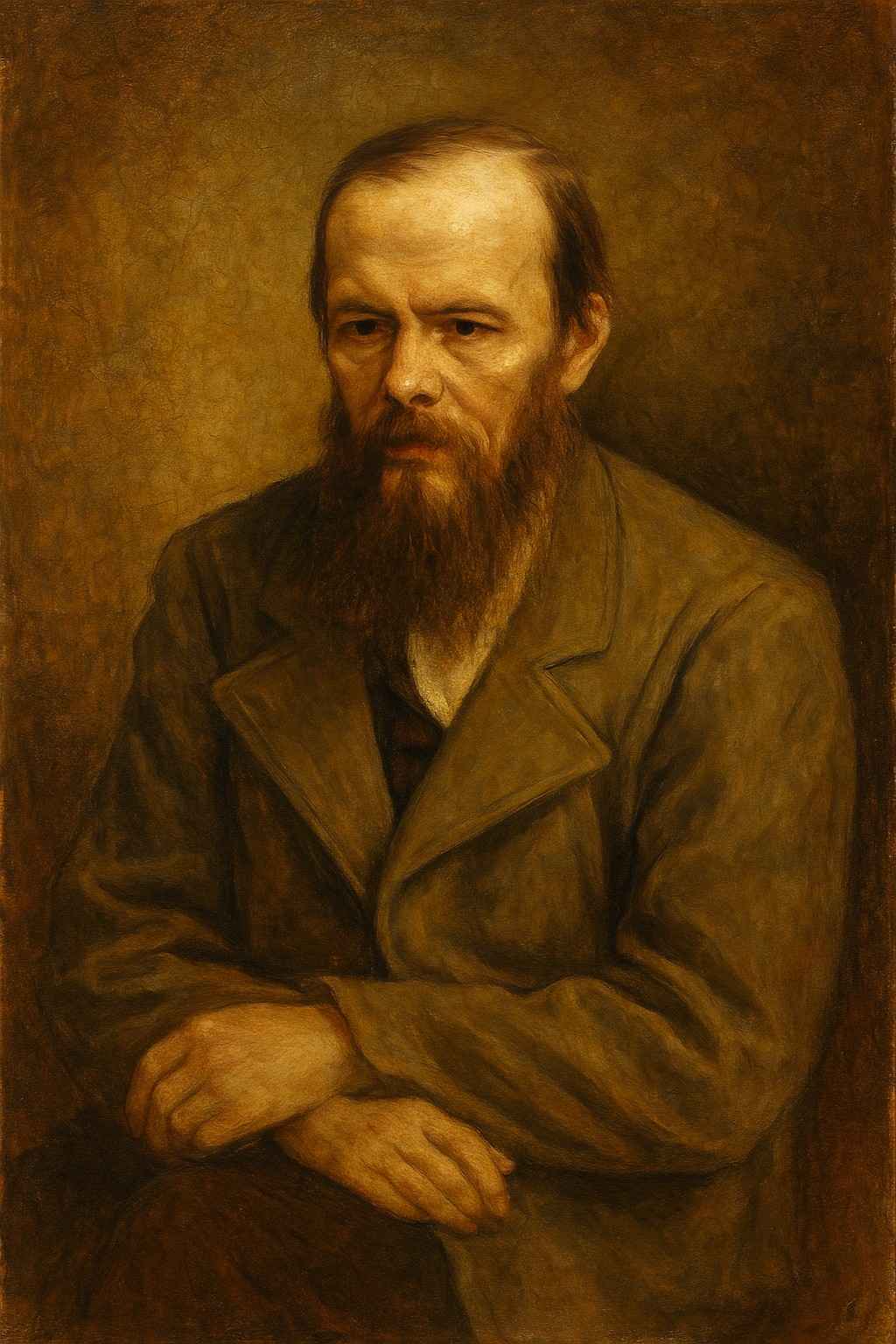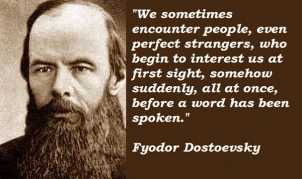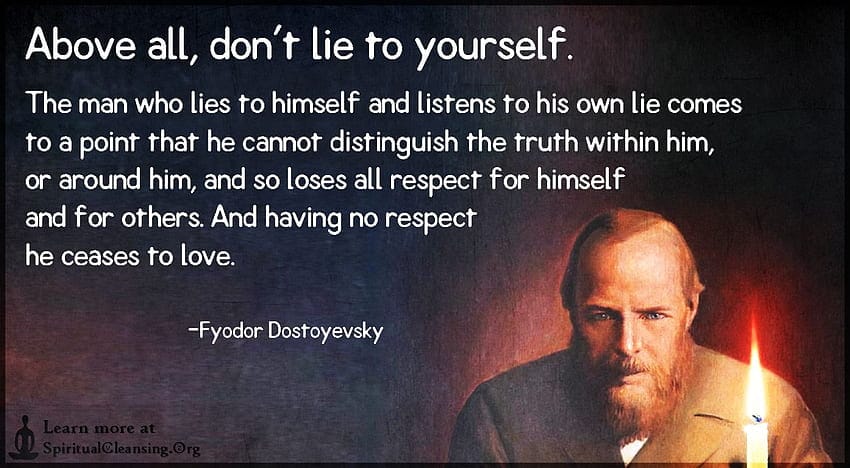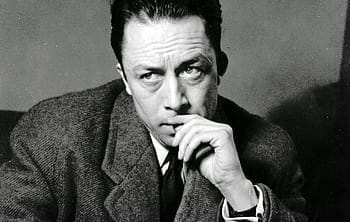Life-Changing Quotes by Fyodor Dostoevsky
Some writers describe life. Dostoevsky digs into it. His words don’t sit on the page. They sit in the gut. Whether it’s suffering, redemption, loneliness, or love, he never looks away from the hard truths. He doesn’t write to impress. He writes to understand the human soul.

These 42 quotes are handpicked from seven of his most powerful books:
Crime and Punishment
The Brothers Karamazov
Notes from Underground
The Idiot
Demons (The Devils)
The Gambler
Poor Folk
From Crime and Punishment (1866)
1. “Pain and suffering are always inevitable for a large intelligence and a deep heart. The really great men must, I think, have great sadness on earth.”
— Crime and Punishment (1866)
There’s something oddly comforting about this. If you’ve ever felt too much or thought too deeply, Dostoevsky is saying you’re not broken. You’re alive.
2. “The man who has a conscience suffers while acknowledging his sin. That is his punishment.”
— Crime and Punishment (1866)
You don’t need a courtroom to feel punishment. Conscience is enough. The real battle is within.
3. “Taking a new step, uttering a new word, is what people fear most.”
— Crime and Punishment (1866)
We hold onto the familiar, even when it hurts us. But this reminds us: don’t wait to be fearless. Move forward anyway.
4. “The darker the night, the brighter the stars. The deeper the grief, the closer is God.”
— Crime and Punishment (1866)
This doesn’t promise ease. It promises that something sacred might be closer than you think.
5. “Power is given only to the one who dares to stoop and take it. One must have the courage to dare.”
— Crime and Punishment (1866)
It’s not ambition—it’s courage. Sometimes what we need is already there. We just have to reach.
From The Brothers Karamazov (1880)
6. “What is hell? I maintain that it is the suffering of being unable to love.”
— The Brothers Karamazov (1880)
Hell isn’t about punishment. It’s about disconnection. A soul shut off from love is its own torment.
7. “Love in action is a harsh and dreadful thing compared to love in dreams.”
— The Brothers Karamazov (1880)
Real love costs something. It asks for patience, forgiveness, effort. But it’s worth every drop.
8. “The more I love humanity in general, the less I love man in particular.”
— The Brothers Karamazov (1880)
Loving real people—with their moods, flaws, and noise—is harder than loving ideas. But it’s the only love that counts.
9. “To be too conscious is an illness. A real, thorough-going illness.”
— The Brothers Karamazov (1880)
Seeing and feeling too much can be a burden. But sometimes, awareness is the first step toward healing.
10. “People speak sometimes about the ‘bestial’ cruelty of man, but that is terribly unjust and offensive to beasts. A beast can never be so cruel as a man, so artistically cruel.”
— The Brothers Karamazov (1880)
We’re capable of tenderness—and terrible cruelty. The more we accept that, the more we’re responsible to choose better.
From Notes from Underground (1864)
11. “I say let the world go to hell, but I should always have my tea.”
— Notes from Underground (1864)
It sounds funny. But it’s about small rituals that help us stay grounded when everything else falls apart.
12. “Man is sometimes extraordinarily, passionately, in love with suffering.”
— Notes from Underground (1864)
We cling to pain because it’s familiar. But once we see that, we can begin to let go.
13. “I swear to you that to think too much is a disease, a real, actual disease.”
— Notes from Underground (1864)
Overthinking can become a prison. Sometimes the way out is through stillness, not more thought.
14. “Man is a creature that can get used to anything.”
— Notes from Underground (1864)
We adapt to pain—but we can also adapt to peace. Nothing is permanent. That’s a quiet kind of hope.
15. “I was lonely. I saw no company but the wall.”
— Notes from Underground (1864)
You can be in a crowd and still feel alone. This line doesn’t dramatize—it just tells the truth.
From The Idiot (1869)
16. “Beauty will save the world.”
— The Idiot (1869)
Not perfection. But the kind of beauty that forgives, comforts, stays. That beauty changes everything.
17. “You must know that there is nothing higher, or stronger, or sounder, or more useful afterward in life than some good memory, especially a memory from childhood.”
— The Idiot (1869)
A single good memory can become a light for the rest of your life. It’s how we’re saved.
18. “Compassion is the chief law of human existence.”
— The Idiot (1869)
Forget all the rules. If we remember this one, we’ll have remembered enough.
19. “To love is to suffer and there can be no love otherwise.”
— The Idiot (1869)
Love opens us. It makes us vulnerable. But a life without it is no life at all.
20. “I don’t understand how one can walk by a tree and not be happy.”
— The Idiot (1869)
This is about presence. About slowing down. Sometimes peace is just a tree away.

From Demons / The Devils (1872)
21. “The more I detest men individually, the more ardent becomes my love for humanity.”
— Demons (1872)
It’s strange how easy it is to love ideals but not individuals. This line reveals the gap between abstract virtue and real compassion. True love shows up person by person, not just in theory.
22. “The secret of man’s being is not only to live but to have something to live for.”
— Demons (1872)
Survival is not enough. We need purpose. Even a little one—a reason to wake up, to try, to care. That’s what gives our days shape and meaning.
23. “A man who lies to himself, and believes his own lies, becomes unable to recognize truth, either in himself or in anyone else.”
— Demons (1872)
This is how self-deception ruins us. Not just by hiding truth, but by making us unable to see it at all. Honesty with ourselves is the first act of real freedom.
24. “Nothing in this world is harder than speaking the truth, nothing easier than flattery.”
— Demons (1872)
Truth costs something. It’s uncomfortable, sometimes even painful. But it’s also rare, and deeply needed. When someone speaks truth gently, they give us a kind of medicine.
25. “Man has it all in his hands, and it all slips through his fingers from sheer cowardice.”
— Demons (1872)
So much is possible—if only we dared. This line reminds us how often fear, not fate, holds us back. And how much courage it takes to simply live boldly.
From The Gambler (1867)
26. “I did not stop to think, I simply felt: I must do it, I must, I must.”
— The Gambler (1867)
That dangerous pull of impulse. We’ve all felt it. When feeling overwhelms reason, and you act before you even understand why. Dostoevsky shows us the rawness of being human.
27. “You can be sincere and still be stupid.”
— The Gambler (1867)
Oof—this one stings, but it’s honest. Good intentions aren’t enough. Wisdom matters too. It’s a call to stay sincere, yes—but also to grow, to think, to listen.
28. “It is not by gaining money, but by throwing it away, that the true gambler gets his pleasure.”
— The Gambler (1867)
Gambling isn’t about winning. It’s about risk, loss, danger—the emotional high. That’s the trap. Dostoevsky, who struggled with addiction himself, knew this truth firsthand.
29. “The soul is healed by being with children.”
— The Gambler (1867)
Children bring us back to simplicity, to innocence. To wonder. When the world hardens us, their presence softens what’s still good inside us.
30. “They say that habit is second nature. Who knows whether nature is not first habit?”
— The Gambler (1867)
We think we are who we are—but often, we are what we repeatedly do. Habits shape character. Maybe more than we’d like to admit.
From Poor Folk (1846)
31. “You must excuse me, but I am a poor man, and have a sick heart.”
— Poor Folk (1846)
This is not self-pity. It’s honesty. Sometimes we need to speak our wounds plainly. That too is a kind of strength.
32. “There are things which a man is afraid to tell even to himself, and every decent man has a number of such things stored away in his mind.”
— Poor Folk (1846)
We all have buried truths. Not because we’re dishonest, but because we’re afraid. This line is about the quiet, inner rooms of the soul we rarely unlock.
33. “Man only likes to count his troubles; he doesn’t calculate his happiness.”
— Poor Folk (1846)
It’s easier to see what’s missing than what’s already here. But this quote nudges us toward gratitude, toward recognizing what hasn’t gone wrong.
34. “I am lonely, Varenka. You know, it is terrible to be poor and lonely.”
— Poor Folk (1846)
Loneliness is hard enough. But when it’s paired with powerlessness, it becomes crushing. This line gives voice to those who feel invisible. And maybe, being heard is the beginning of healing.
35. “How difficult it is to be poor and honest!”
— Poor Folk (1846)
To keep your integrity when you have nothing—that’s a kind of heroism. Dostoevsky sees this struggle with tender eyes.
Additional Reflections from Across Works
36. “Lying to ourselves is more deeply ingrained than lying to others.”
— From Dostoevsky’s Letters
Sometimes the person we’re most dishonest with is the one in the mirror. This line invites us to choose truth, even when it’s uncomfortable.
37. “The best definition of man is: a being that goes on two legs and is ungrateful.”
— Notes from Underground (1864)
It’s bitter, but there’s a sting of recognition. We forget the good. We demand more. But maybe seeing this flaw is the first step toward changing it.
38. “A hundred suspicions don’t make a proof.”
— The Brothers Karamazov (1880)
Doubt is not evidence. In a world full of rumor and assumption, this quote calls us back to fairness. To patience. To truth.
39. “To live without hope is to cease to live.”
— Demons (1872)
Hope isn’t luxury. It’s survival. Even the faintest thread of it keeps us tethered when everything else feels lost.
40. “Realists do not fear the results of their study.”
— The Brothers Karamazov (1880)
Truth can be terrifying. But facing it is the path to real strength. The realist might be shaken—but not broken.
41. “I love mankind… but I am amazed at myself: the more I love mankind in general, the less I love people in particular.”
— The Brothers Karamazov (1880)
Another echo of a deeper truth: abstract love is easy. But to love someone in front of you—when they annoy you, fail you—that’s the real work.
42. “A man who lies to himself can be more easily offended than anyone.”
— Demons (1872)
Because deep down, he knows the truth. And every reminder stings. This line invites self-honesty—not to punish, but to heal.
If These Words Moved You…
If these quotes made you pause, reflect, or even feel seen—then you’re only scratching the surface of who Dostoevsky really was.
Behind every quote lies a man who walked through poverty, imprisonment, loss, and spiritual rebirth… and still chose to write, to wrestle with truth, and to speak to the deepest corners of the human heart.




As a Newbie, I am continuously browsing online for articles that can be of assistance to me. Thank you
Thank you so much for your comment!
Very interesting points you have noted, thankyou for posting. “She had an unequalled gift… of squeezing big mistakes into small opportunities.” by Henry James.
Thanks for another magnificent post. Where else could anybody get that kind of info in such a perfect way of writing? I’ve a presentation next week, and I am on the look for such info.